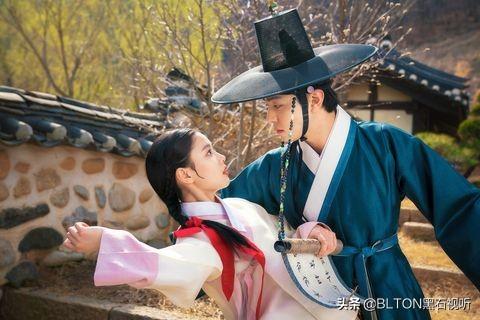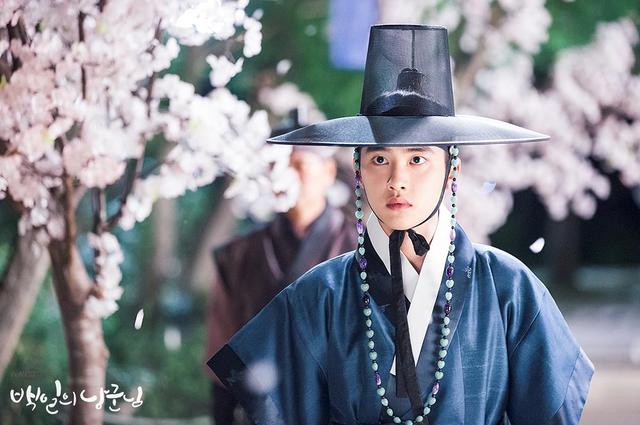自学外贸英语一点通(每周一课学起来)
Lesson Thirteen Visiting a Scenic Spot第13课 参观景区
根据考察计划与安排,John在何娜娜的陪同下,今天上午要参观三亚市附近的一个景区。早餐后,他们要参观哪个景区?在景区说了些什么?
课文
Conversation 2
Nana:Here we are, We're on the top of the mountain.
我们到了。我们现在到山顶了。
John:Look at the statue. The deer is looking back, and next to it is a handsome young man with a bow in his hand and a pretty girl by his side.
看那座雕像。鹿在回头,鹿的旁边是一位年轻英俊的小伙子,他手里拿着弓箭,紧挨着他的是一位美丽的姑娘。
Nana:It seems as if they are telling a story to tourists.
他们仿佛在给游人讲述着故事。
John:Right. Tell me the story. I can't wait.
对呀,给我讲讲这个故事,我等不及了。
Nana: Okay. Once upon a time, there lived a young man in a valley of Wuzhishan. He was such a good hunter that he became known to all. One day at dawn, he set out to go deer hunting in the mountains, crossing over hills and valleys, but he didn't get anything.
好的。很久以前,在五指山山沟里,住着一位青年,是远近闻名的好猎手。有一天,他黎明出发到山林里去猎鹿,翻山越岭,却一无所获。
John:Oh, what a poor guy! Did he find any deer later?
哎,可怜的人!后来他发现鹿了吗?
Nana:Yes, he did. Before he lost hope, suddenly he saw a cute deer bouncing not far away from him.
是的,就在他失望的时候,突然,他看见一只灵巧的梅花鹿,离他不远,活蹦乱跳。
John:I guess he was overjoyed. Then what did he do?
我想他高兴极了。然后呢?
Nana:When he was ready to shoot at it, the deer looked at him and ran away quickly.
就在他准备射杀时,小花鹿瞧了他一眼,拔腿就跑。
John:What did he do next?
后来呢?
Nana:He was chasing after the deer all the way, climbing over hills after hills, going across deep streams and thick forests of coconut palms until he reached Yulin Port in Yazhou.
年轻的猎人不停地追着小花鹿,越过山岭,跨过深涧,穿过茂密的椰林,一直追到崖州的榆林港。
John:What happened to the deer?
小花鹿怎么样了?
Nana:Just as he tried to shoot at it, all of a sudden, the deer turned into a beautiful girl, and smiled at him. He was so amazed to see it that he could not bear to kill her.
就在年轻的猎人试图射杀它时,忽然,小花鹿变成了一位漂亮的姑娘,朝他微笑着。看到这一切,年轻的猎人惊奇不已,他不忍心射杀她。
John:Then they fell in love with each other. Am Ⅰ right?
然后他们就彼此相爱了,对吧?
Nana:Yes. They got married. Ever since then they have had a happy life, and the husband never went hunting again.
是的,他们结婚了。从那以后他们过着幸福的生活,丈夫也不再去打猎了。
John: Then what did they live on?
那么他们靠什么生活呢?
Nana: They lived on farming. They cleared and worked the land in the coconut palm forest on the coast of the South China Sea. Later this place got the name the Deer Looking Back.
他们靠种地生活,在南海之滨的椰林里开荒种地。这个地方后来就被称作“鹿回头”。
John:What a touching story! Everything here charms me a lot. I can't tear myself away from here.
故事太感人了!这里的一切都令我着迷,让人流连忘返。
重点句子轻松学
11.It seems as if they are telling a story to tourists.
他们仿佛在给游人讲述着故事。
系动词 seem 后跟 as if/as though 在某些情况下可表示真实情况,在某些情况下也可表达虚拟的、非真实的语气,用法视具体语境而定。请看下面的例句:
(1)It seems as if it's going to rain.
看样子天要下雨了。
(2)It seems as if she is very rich.
看样子她很富有。
(3)It seems as though they could get married.
他们好像要结婚似的。
12.Once upon a time, there lived a young man in a valley of Wuzhishan.
很久以前,在五指山山沟里,住着一位青年。
词组 once upon a time 用于传说或神话故事的开头,意为“从前;很久以前”。如:
Once upon a time, there was a beautiful princess.
从前,有一位美丽的公主。
句型 “there lived 名词或名词词组” 是 “there be 名词或名词词组” 的变体,这句话也可以说 “There was a young man.” 请看下面的例句:
(1)Long, long ago, there lived a pretty princess in the castle.
很久,很久以前,这座城堡里住着一位美丽的公主。
(2)Ten years ago, there lived a wise man in the village.
十年前,这个村里住着一位智者。
13.He was such a good hunter that he became known to all.
他是远近闻名的好猎手。
句型 such...that... 表示“如此……以至于……”的意思,后跟名词,that 后跟从句,表示结果。请看下面的例句:
(1)He is such good guy that everybody in the village likes him.
他是一位好人,所以村里的人都喜欢他。
(2)Hainan is such a beautiful place that tourists would like to come.
海南是一个如此美丽的地方,所以游客都愿意来。
词组 be/become known(to sb) 意为“出名;被人所知”。请看下面的句子:
(1)He is known to all the teachers in the school.
学校里所有的老师都知道他。
(2)I'm sure Hainan will become well known to the world one day.
我确信终有一天海南会闻名世界的。
14.One day at dawn, he set out to go deer hunting in the mountains, crossing over hills and valleys.
有一天,他黎明出发到山林里去猎鹿,翻山越岭。
词组 at dawn 意为“在拂晓;在黎明”;set out 意为”(怀着目标)出发;动身;开始工作”。
请看下面的例句:
(1)He set out to work at dawn.
天还没亮他就去工作了。
(2)Every day at dawn she sets up to prepare for the exam.
为了准备这次考试,每天天没亮她就开始学习了。
(3)The Chiese team set out to break the world record.
中国队一心努力要打破世界纪录。
现在分词短语 crossing over hills and valleys 用作伴随状态。
15.Suddenly he saw a cute deer bouncing not far away from him.
突然,他看见一只灵巧的梅花鹿,离他不远,活蹦乱跳。
动词搭配 see sb doing (sth) 意为“看见某人正在做(某事)。请看下面的对话
(1)A: What did you see, Jack?
Jack,你看到什么了?
B: I saw a young man entering the building.
我看见一个年轻人进了那座大楼。
(2)A: What did you see, Jane?
Jane,你看到什么了?
B: I saw a guy coming out of the building.
我看见一个人从那座大楼里出来了。
16.What happened to the deer?
鹿怎么样了?
句型 sth happen to sb/sth 意为某事“遭遇、降临”到某人或某物上。如:
I hope nothing happened to him.
我希望他没出事。
What has happened to your car?
你的车出什么毛病了?
17.He tried to shoot at it.
他试图射杀它。
动词 try 有不少用法,句中 try to do sth 意为“试图;设法努力做某事”。如:
He tried to solve the problem, but he failed.
他试图解决这个难题,可是没成功。
I tried to persuade her to marry me.
我设法说服她嫁给我。
18.He was so amazed to see it that he could not bear to kill her.
看到这一切,年轻的猎人惊奇不已,他不忍心射杀她。
句型 so...that... 在此表示“如此……以至于……”的意思,so 修饰形容词或副词,that 引导结果状语。请看下面的例句:
(1)The children were so excited that they couldn't fall asleep.
孩子们都兴奋地无法入睡。
(2)This sentence is so difficult that no one in the class can understand it.
这个句子太难了,班里没有一个人能理解它。
(3)The teacher spoke so fast that we couldn't catch him.
老师讲得太快,我们都跟不上。
请注意 be amazed(at/by sb/sth)、be amazed how/what、be amazed to(see、find、learn...) 等的用法。请看下面的例句:
(1)I was amazed at her knowledge of Chinese literature.
她的中国文学知识之丰富使我大为震惊。
(2)We were amazed by his success.
他的成功使我们喜出望外。
(3)I was amazed how little she had changed.
我诧异的是她竟然没有什么变化。
(4)I was amazed to learn that he had become a CEO.
我惊奇的是他竟然当了首席执行官。
句中词组 can not bear to do sth 意为“不忍心做某事”,可作为整体搭配来记忆。如:
I can't bear to eat it.
我可不忍心吃它。
She couldn't bear to see her son marry such a lady.
她不能忍心看到她的儿子娶了这样一位女子。
19.They fell in love with each other.
他们彼此相爱了。
动词词组 fall in love with 意为“一见钟情;坠入爱河”。如:
He fell in love with her at first sight.
他对她一见钟情。
He fell in love with skating.
他爱上了滑冰。
20.Ever since then they have had a happy life.
从此以后他们过着幸福的生活。
ever since then 意为“自此以后;从那以后”,用于现在完成时,可以当作词组记忆。如:
Nothing bad has happened to the family ever since then.
从那以后,这家人再也没有遭遇到不幸的事情。
21.Everything here charms me a lot.
这里的一切都令我着迷。
sth/sb charm sb 意为“某事或某人迷住、吸引某人”。如:
The coconut palms charm the tourists.
椰子树让游客们着迷。
The tourists are charmed by the coconut palms.
游客们被椰子树迷住了。
词组 a lot 用作副词,与动词连用,在句中修饰动词 charm,意为“非常;许多地”。如:
They helped me a lot when I was in trouble.
我困难时他们帮了我许多忙。
22.I can't tear myself away from here.
让人流连忘返。
词组 tear oneself away(from sth) 意为“依依不舍地离开;忍痛离去”。如:
Children usually can't tear themselves away from computer games.
孩子们通常难以摆脱电脑游戏。
She tore herself away from the beach.
她依依不舍地离开了海滩。
tear 的过去式是 tore,过去分词为 torn。
词汇加油站
名胜古迹 places of interest
世界文化遗产 worldcultural heritage
民俗园 folkgarden
旅游景点scenic spot
旅游胜地touristattraction
度假胜地holidayresort
避暑胜地summer resort
自然保护区nature reserve
森林保护区forestry reserve
原始森林primeval forest
野生动物园 wildlifepark/safaripark
野生动物保护区wildlife reserve
自然奇观natural wonder
来源:海南省妇联、海南出版社
,
免责声明:本文仅代表文章作者的个人观点,与本站无关。其原创性、真实性以及文中陈述文字和内容未经本站证实,对本文以及其中全部或者部分内容文字的真实性、完整性和原创性本站不作任何保证或承诺,请读者仅作参考,并自行核实相关内容。文章投诉邮箱:anhduc.ph@yahoo.com















